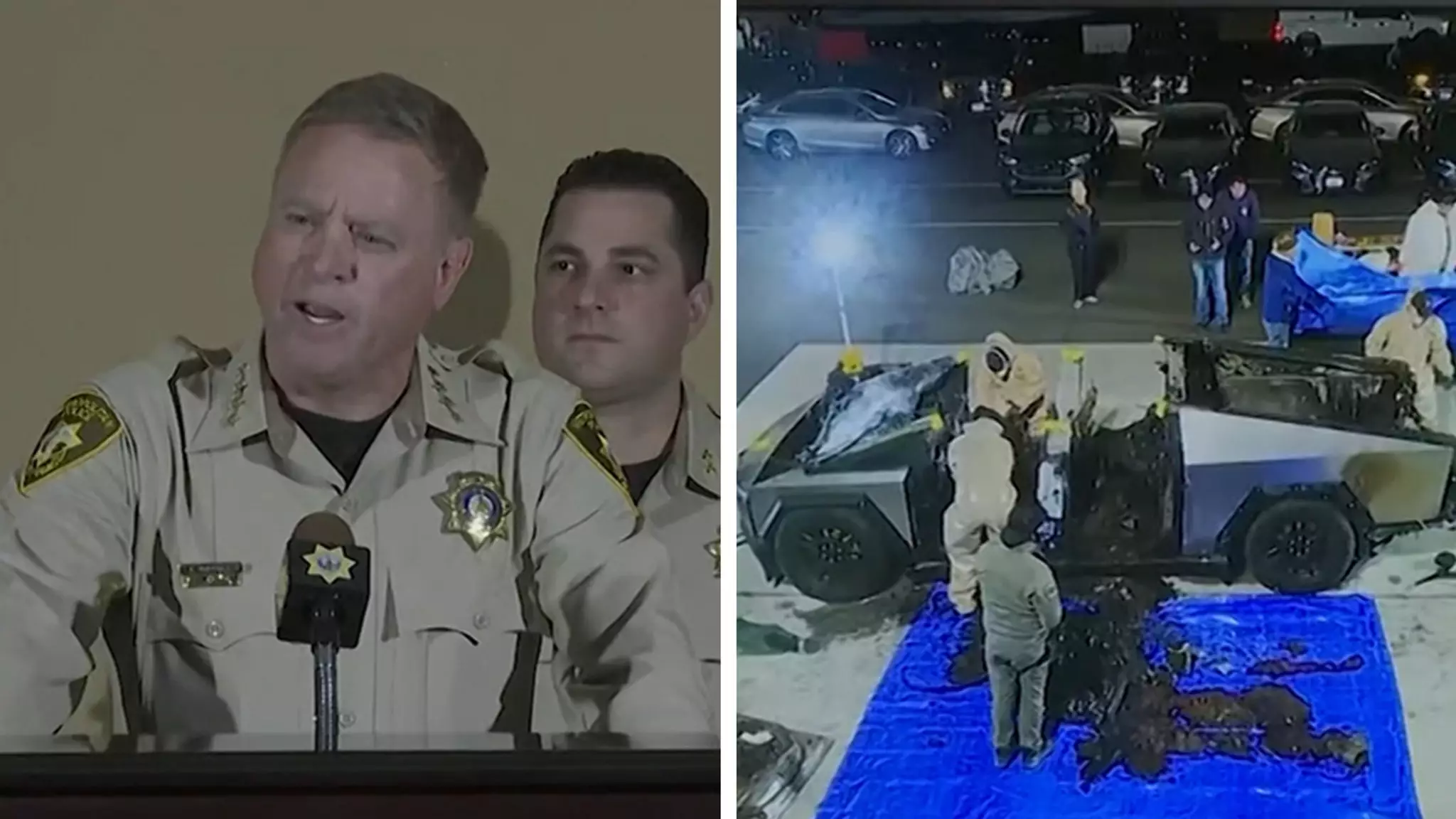On New Year’s Day, a shocking event unfolded in front of the Trump International Hotel in Las Vegas. A man, identified as Matthew Alan Livelsberger, detonated a Tesla Cybertruck, resulting in a harrowing public scene that left city officials and citizens reeling. Reports reveal that just before the explosion, Livelsberger fatally shot himself in the head. The exact circumstances remain unclear; law enforcement has not definitively stated whether he succumbed to the gunshot or the ensuing blast. This tragic incident raises profound questions about mental health, gun access, and the societal issues underlying such acts of violence.
Livelsberger, a veteran of the Army Special Forces, was found carrying military identification, his passport, and credit cards, elements that quickly led authorities to ascertain his identity. Distinctive tattoos on his body further aided in this identification process. This aspect highlights the need for a thorough examination of how veterans are treated post-service, particularly regarding mental health support. The ongoing challenges many veterans face can lead to tragic outcomes, warranting a national conversation on how to better assist these individuals before they reach a breaking point.
Following the explosion, law enforcement discovered a Desert Eagle .50-caliber semiautomatic pistol at Livelsberger’s feet, along with another firearm, an SLR B30, located inside the vehicle. Equally concerning was the find of consumer-grade fireworks, which suggest that the explosives were easily obtainable. The Bureau of Alcohol, Tobacco, Firearms and Explosives (ATF) revealed that Livelsberger had purchased the firearms just two days prior to the incident, raising alarms about the accessibility of such lethal weaponry. This instance reignites an age-old debate surrounding gun control and the need for more stringent regulations, particularly for those who may exhibit signs of distress.
An extensive investigation tracked the Cybertruck’s movements from Colorado to Nevada, showcasing a well-planned trip that included multiple stops at Tesla charging stations. Livelsberger rented the vehicle through the Turo app, casting shadows of concern over the platform’s accountability in ensuring the safety of their rentals. The Cybertruck’s journey included two stops in Colorado on December 30 and 31, alongside passage through New Mexico, before arriving in Las Vegas early on New Year’s Day. Surveillance footage captured the truck’s entrance to Fashion Show Drive shortly before the catastrophic explosion, indicating a troubling level of premeditation.
The harrowing events surrounding Matthew Alan Livelsberger’s tragic actions demand our attention beyond the immediate shock value news headlines tend to present. This incident serves as a reminder of the critical need for systemic changes in mental health support for veterans, tighter regulations on firearms, and a nuanced understanding of the factors leading to such devastating acts. As we reflect on this occurrence, we must also take proactive steps to ensure that such a tragedy does not repeat itself in the future. Engaging in these discussions is paramount for fostering a safer society.

